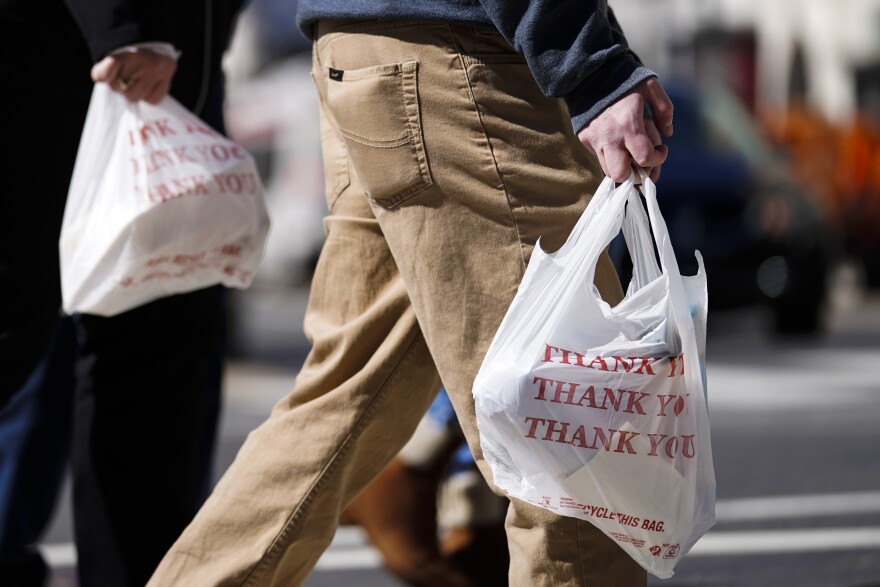Pittsburgh City Council has been talking about banning single-use plastic bags for almost a year now, and took up legislation to do so this past November. But the bill has been held for months now due to concerns by small businesses and community members, according to bill sponsor Councilor Erika Strassburger.
The measure is on the agenda again on Wednesday, but Strassburger says she expects another delay.
The bill would ban single use plastic bags and encourage shoppers to bring recyclable bags. Otherwise, they would be able to purchase paper bags for a fee, which would go directly back to the retailer.
The goal is to reduce plastic bag pollution in the city. But some business owners question how it could affect them.
“Supply chain costs are up" already, said Jeff Cohen, who owns Smallman Street Deli. He said with inflation already soaring, the timing could not be worse. “It’s not a bad concept, but all you’re doing is passing cost to consumers. I wouldn’t do anything like this until 2023 or 2024.”
Cohen said officials need to take into account the plight of people who are on low-income budgets or fixed incomes — and that there should be a plan for food delivery.
“The biggest issue is going to be delivery from places,” he said.
“You have nothing to replace them with,” Cohen said, “It’s 75% more using paper, per bag. Sometimes it’s about 50%, but it definitely doubles the cost of plastic bags.”
Strassburger said the bill could be drafted to address those concerns, she said, including "potentially exempting those who have SNAP or WIC or other benefits" that help lower-income households afford groceries.
Strassburger also acknowledged that businesses and residents will need time to adjust to the new policy. Even after the bill passes, she said she was considering giving stores and customers alike a full year to prepare, rather than the six months currently in the bill.
Similar legislation passed in Philadelphia after being sponsored by Councilor Mark Squilla. As in Pittsburgh, the bill's goal was to help reduce plastic waste. Squilla's office said most of the concerns came from supermarkets.
"Some supermarkets here do charge for paper bags to offset for costs," said Anne Kelly, Squilla's chief of staff. "A lot of it was that the smaller neighborhood stores wouldn’t want to charge for them."
But she said Philadelphia did give customers time to adjust.
Philadelphia's "commerce department and Target did give out the heavy-duty [reusable] bags for about a month prior to the ban taking effect to get people into the mode of using them," she said.
Strassburger said she is interested in similar opportunities for Pittsburgh, which could partner with stores to distribute reusable bags.
And some Pittsburgh stores may not need much convincing. Prior to the coronavirus pandemic, some Giant Eagle grocery stores were doing away with plastic bags. The local chain reversed its position because of pandemic-era concerns about potential COVID transmission from people bringing in their own bags. However, Giant Eagle said it supports the bill, and plans to resume efforts to stop using plastic.
Meanwhile, Kelly said Philadelphia's legislation is making an impact.
"You do see a difference in plastic bags flying around, and being littered everywhere," Kelly said.




